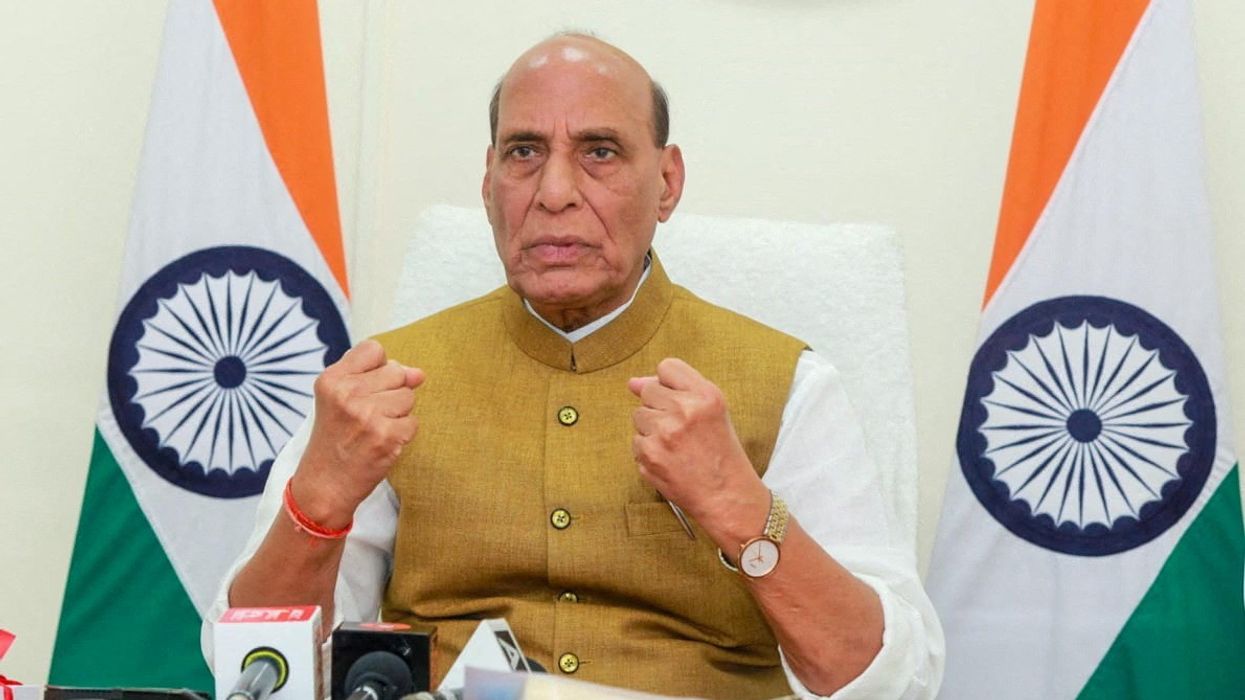INDIA's defence minister Rajnath Singh on Thursday said the International Atomic Energy Agency (IAEA) should take charge of Pakistan’s nuclear weapons. His remarks came days after the two countries ended their most serious military confrontation in nearly three decades.
Addressing soldiers in Srinagar, Singh said, “Are nuclear weapons safe in the hands of such an irresponsible and rogue nation? I believe that Pakistan’s nuclear weapons should be taken under the supervision of IAEA.”
There was no immediate response from Pakistan to Singh’s statement.
Fighting broke out last week after India carried out airstrikes on what it called “terrorist camps” inside Pakistan. The airstrikes were in response to an attack in Indian Kashmir last month that killed 26 men. India said the attack was backed by Pakistan. Islamabad denied the charge.
In the days that followed, both countries sent missiles and drones into each other’s airspace. A truce was reached on Saturday.
The IAEA is a United Nations watchdog based in Vienna that monitors nuclear programmes to ensure they are peaceful.
India and Pakistan became nuclear powers after conducting nuclear tests in 1998.
The latest conflict escalated on Saturday, raising concerns that nuclear weapons could come into play. Pakistan’s military had said that a top body overseeing its nuclear arsenal would meet. However, the Pakistani defence minister later said no such meeting was scheduled.
Military analysts said the announcement may have been intended as a signal, as Pakistan has a “first-use” policy if its existence is under threat.
Indian prime minister Narendra Modi said on Monday that India would strike terrorist hideouts across the border again in the event of another attack, and would not be deterred by what he called Islamabad’s “nuclear blackmail”.
Pakistan rejected Modi’s remarks, calling them “provocative and inflammatory assertions” and said they represent a dangerous escalation.
India accuses Pakistan of supporting terrorists fighting security forces in its part of Kashmir. Pakistan denies the charge.
(With inputs from Reuters)





